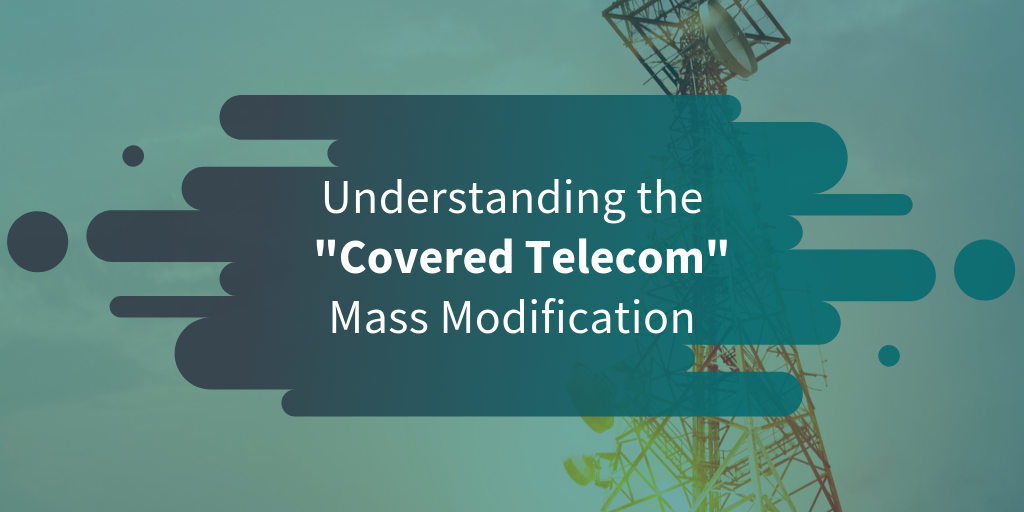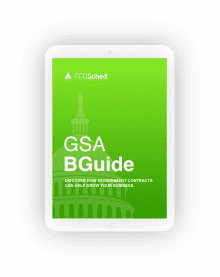
A Brief Background
Concerns regarding China’s potential to utilize Huawei and other Chinese telecommunications companies to breach U.S. security led to a government ban on specific telecom and video surveillance equipment, effective August 13, 2019.
Huawei, a telecommunications provider headquartered in China, has been in existence for decades and is no stranger to controversy. Over the years the company and individual company employees have been accused of intellectual property theft and espionage. Huawei has been a frequent subject in the news over the past year and a half in particular. You can catch up on the mounting drama with CNET’s timeline here.
Last month, the ban trickled down to the GSA Schedules Program in the form of a mass modification. If you hold a GSA Schedule Contract, you’re required to sign a mass modification regarding the “covered” telecommunications equipment and services ban; which incorporates the following clauses into your GSA Schedule Contract:
- FAR Clause 52.204-25 Regarding the Prohibition of Certain Telecommunications and Video Surveillance Services or Equipment
- GSAR Clause 552.204-70 Regarding the Representations of Certain Telecommunications and Video Surveillance Services or Equipment
In plain speaking terms, the mass mod requires contractors to acknowledge the ban detailed in the FAR and then represent annually within the System for Award Management (SAM) if they include any banned telecom equipment or services as part of their offerings. Depending on the GSA Schedule you hold, you’ll need to represent whether you will or will not provide prohibited items at the order level and/or contract level.
What is Banned?
The following is banned if used in any system as a substantial component, an essential component, or as critical technology:
- Telecommunications equipment produced by Huawei Technologies Company or ZTE Corporation (or any subsidiary or affiliate of such entities)
- For the purpose of public safety, security of Government facilities, physical security surveillance of critical infrastructure, and other national security purposes, video surveillance and telecommunications equipment produced by Hytera Communications Corporation, Hangzhou Hikvision Digital Technology Company, or Dahua Technology Company (or any subsidiary or affiliate of such entities)
- Telecommunications or video surveillance services provided by such entities or using such equipment
- Telecommunications or video surveillance equipment or services produced or provided by an entity that the Secretary of Defense, in consultation with the Director of National Intelligence or the Director of the Federal Bureau of Investigation, reasonably believes to be an entity owned or controlled by, or otherwise connected to, the government of a covered foreign country.
Are There Exceptions to the Ban?
Outside of the two exceptions listed below, the Director of National Intelligence can provide a waiver in the interest of national security. The head of an executive agency may also provide a waiver on a one-time basis if they receive “compelling justification” and a full description of the covered technology in the relevant supply chain accompanied by a phase-out plan.
Companies are not prohibited from providing:
- A service that connects to the facilities of a third-party, such as back-haul, roaming, or interconnection arrangements
- Telecommunications equipment that cannot route or redirect user data traffic or permit visibility into any user data or packets that such equipment transmits or otherwise handles.
What Happens if You Provide Banned Telecom Equipment or Services?
If you discover you’re providing banned equipment or services under a government contract, whether through notification by a subcontractor or any other source, you’re required to report the information within one day of discovery/notification. If the banned items are discovered under a GSA Schedule order, you’re required to report to your GSA Contracting Officer and the Contracting Officer for your affected orders. Reports for DOD orders should be submitted at https://dibnet.dod.mil/.
Based upon the required reporting information below, the government may be establishing a database of excluded telecom equipment and services.
- Contract Number
- Order Number(s) (if applicable)
- Suppliers Name
- Supplier Unique Entity Identified (if known)
- Supplier Commercial and Government Entity (CAGE) code (if known)
- Brand
- Model number (original equipment manufacturer number, manufacturer part number, or wholesaler number)
- Item description
- Any readily available information about mitigation actions undertaken or recommended
What Else Should Contractors Know?
As we stated earlier, you’ll be required to represent whether you will or will not provide prohibited items. The FAR clause requires representation at the contract and order level. However, GSA issued a class deviation that essentially says contractors with procurements under GSA contract vehicles that have a low or medium risk of including covered telecom or video surveillance equipment only have to represent at the contract level, unless the contracting officer determines the order could potentially include IT or communication technology.
High Risk → Contract and Order Level Representations
The following contract vehicles are considered High Risk Procurements, which means companies will need to represent at both the contract and order level:
- GSA Schedules 36, 58 I, 70, and 84 (or the equivalent SINs under the Consolidated MAS Structure)
- Telecommunications Contracts (Networx, Enterprise Infrastructure Solutions, Connections II, and Local Telecommunications)
- IT Governmentwide Acquisition Contracts (GWACs) (Alliant 2, Alliant 2 SB, VETS 2, and 8{a) STARS III)
- Commercial Solution Opening Procurements (CSOs)
Medium Risk → Contract Level Representations with Discretionary Exceptions
The following contract vehicles are considered Medium Risk Procurements. This means companies will only need to represent at the contract level, unless the GSA contracting officer decides there is a potential for IT or telecom solutions:
- Building Automation System (BAS) orders under:
- GSA Facilities Maintenance and Management Schedule 03FAC (or the equivalent SINs under the Consolidated MAS Structure)
- Building Maintenance and Operations (BMO)
- Other Operations and Maintenance Indefinite Delivery Contracts
- Repair and Alteration Indefinite Delivery Contracts
- One Acquisition Solution for Integrated Services (OASIS) and OASIS Small Business
- Human Capital and Training Solutions (HCaTS)
Low Risk → Contract Level Representations
All other GSA indefinite delivery contracts not classified as High or Medium Risk are considered Low Risk Procurements, this includes the GSA Schedules listed below (or the equivalent SINs under the Consolidated MAS Structure). Companies only need to represent these Low Risk Procurements at the contract level, unless the GSA contracting officer decides there is a potential for IT or telecom solutions.
- GSA Transportation, Delivery, and Relocation Solutions Schedule 48
- GSA Buildings & Building Materials Schedule 56
- GSA Scientific Equipment & Services Schedule 66
- GSA Photographic Equipment, Related Supplies, & Services Schedule 67
- GSA Furniture Schedule 71
- GSA Furnishing and Floor Coverings Schedule 72
- GSA Food Service, Hospitality, Cleaning Equip & Supplies Schedule 73
- GSA Office Products and Supplies Schedule 75
- GSA Publication Media Schedule 76
- GSA Sports, Promotional, Outdoor, Trophies & Signs Schedule 78
- GSA Travel Services Solutions Schedule 599
- GSA Temporary Administrative & Professional Staffing Schedule 736
- GSA Leasing of Automobiles & Light Trucks Schedule 751
- GSA Professional Services Schedule (PSS) Schedule 00CORP
- GSA Automotive Superstore Schedule 23 V
- GSA Hardware Superstore Schedule 51 V
- GSA Comprehensive Furniture Management Services Schedule 71 II K
- GSA Human Resources & EEO Services Schedule 738 X
- GSA Shipping, Packaging and Packing Supplies Schedule 81 I B
Keep in mind, there are exceptions to the above representation guidelines. GSA is required to follow the funding agency’s rule when providing assisted acquisitions, so order-level representations can be required at the governmentwide user’s request. You read more on GSA’s guidance, including an FAQ, here.
Need Guidance on Outstanding Mass Modifications?
Accepting mass modifications is an important part of keeping your contract up to date. If your company has outstanding mass modifications it can impact your ability to make other contract updates. Our contract experts here at FEDSched have been helping companies manage their GSA Schedule Contracts for more than 30 years – that includes providing guidance on mass modifications issued by GSA. Contact us to discuss how we can help your company.

